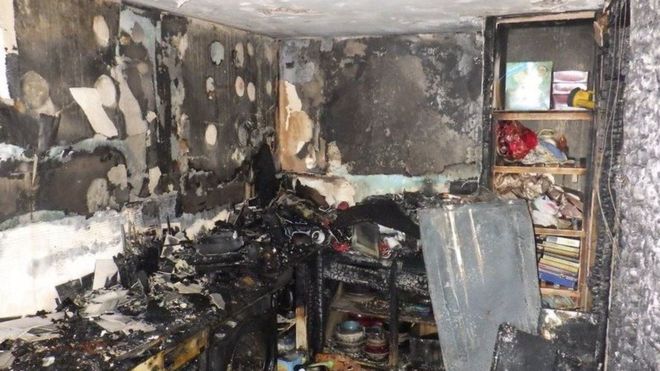According to data compiled by Cleveland Fire Brigade recently, faulty home appliances caused 167 fires on Teesside in the 12 months to March 2017. If you then take a look across the UK as a whole it’s being estimated that faulty electrical appliances are causing around 60 fires a week. We look at how these stats can be improved with fire safety measures.
Not all of these fires are major although they can still cause a lot of disruption. But some of them have far more serious consequences. Organisations like Electrical Safety First have worked hard to try to make people aware of the fire risks that these types of appliances can pose. But very sadly the issue of white goods fire safety became suddenly and tragically highlighted last June following the Grenfell Tower fire that originated from a malfunctioning fridge freezer.
In part to try to improve fire safety from faulty appliances as well as to increase product safety in general for all consumers, the government has created a new Office for Product Safety and Standards. They’ve also recently been consulting on new safety measures to better protect tenants by reducing the risk of electric shocks or fires caused by electrical faults. This review is covering private sector renting but a social housing green paper is currently being drafted as well. While it doesn’t exclusively focus on electrical appliances, it does aim to address the full range of fire safety risks tenants face, and contains a raft of recommendations which include introducing five yearly mandatory electrical installation safety checks for all private rented properties.
Reducing risks from faulty appliances
But with around 60 fires a week in the UK, it’s incumbent on every one of us to do what we can to reduce the risks. And whether you’re a landlord or a domestic homeowner there’s plenty you can do:
- Always buy appliances from reputable dealers and follow the instructions supplied with the appliance when installing and using it.
- Register your appliance with the manufacturer when you buy it – it’s often done as part of the guarantee registering process. If you have appliances that were bought a while back you can still register them at Register My Appliance. If any issues arise, the manufacturer will use the information to contact you directly.
- Check if a recall has taken place on any of your appliances that aren’t currently registered – particularly if you have any concerns about them. The Government-backed product recall database covers a whole range of products, not just household appliances, that might have been subject to recall. Manufacturer websites will also have details of any recalls they’ve made and Electrical Safety First have an online checker.
- Don’t leave appliances on (other than those that have to run continuously) if your house is unoccupied or when all occupants are sleeping.
- Keep an eye out for any indications of heat or scorching on plugs and sockets and listen for buzzing, crackling or any other unusual sounds. If fuses are regularly blowing or circuit-breakers tripping that could suggest a problem so get it checked out by a qualified person.
